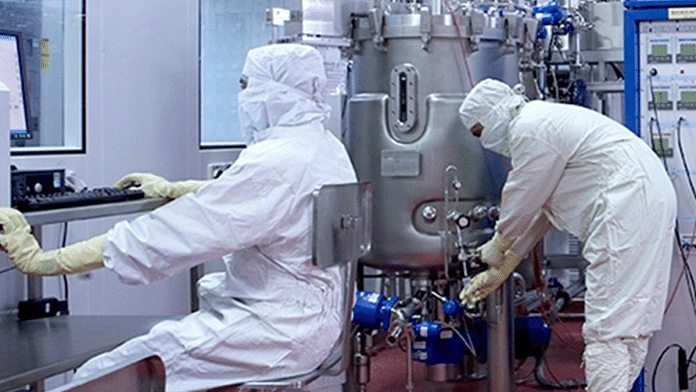New Delhi: India may soon have its first indigenously-developed human papillomavirus (HPV) vaccine that also helps prevent cervical cancer.
Drugs Controller General of India (DCGI) on July 12 granted market authorisation to the Pune-based Serum Institute of India (SII) for the first Quadrivalent Human Papillomavirus vaccine (qHPV) against cervical cancer.
HPV is the most common sexually-transmitted infection which causes warts in various parts of the body, depending on the strain. The infection has no cure, and the warts often go away on their own.
Many people with HPV do not develop symptoms but can still infect others through sexual contact. However, HPV can also cause cervical cancer in women.
Cervical cancer is one of the leading causes of female cancer mortality worldwide. Studies show that as much as 85 per cent of cervical cancer related deaths occur in low and middle income countries where routine gynecological screening is minimal or absent.
There are about 14 high-risk HPV types including HPV 16, 18, 31, 33, 35, 39, 45, 51, 52, 56, 58, 59, 66, and 68. HPV vaccines usually contain a protein known as L1 — present on the outer surface of the virus — that are capable of assembling into virus-like particles (VLPs).
These VLPs then trick the body into thinking it is under attack by the virus, inducing the immune system to kick into action and create antibodies.
SII has been working on the quadrivalent HPV vaccine which includes L1 VLPs of serotypes 6,11,16,18.
The vaccine prevents infection from four strains, which according to the company, is expected to give a coverage of approximately 90 per cent against papilloma virus prevalent in the developing world.
SII had started phase II/III clinical trials in multiple centres across the country to study the efficacy of the vaccine in girls and young women in 2018, with long term follow-up intended for up to three years.
The results from the trial was reviewed by the DCGI’s Subject Expert Committee.
Previous attempts to introduce the HPV vaccine in India was marred in controversy.
In 2009, Seath-based organistion Program for Appropriate Technology in Health (PATH) had launched a clinical trial with two HPV vaccines — Gardasil and Cervarix — developed in the US.
The trial involved vaccinating 13,000 girls aged 10 to 14 in Andhra Pradesh with Gardasil and 10,000 with Cervarix in Gujarat.
However, the Indian government halted the trials in March 2010 after activist groups raised concerns over alleged safety and ethical violations following the death of seven girls enrolled in the study.
However, an internal government inquiry concluded in 2011 that the deaths were unrelated to the vaccination and that no ethical norms had been infringed upon.



